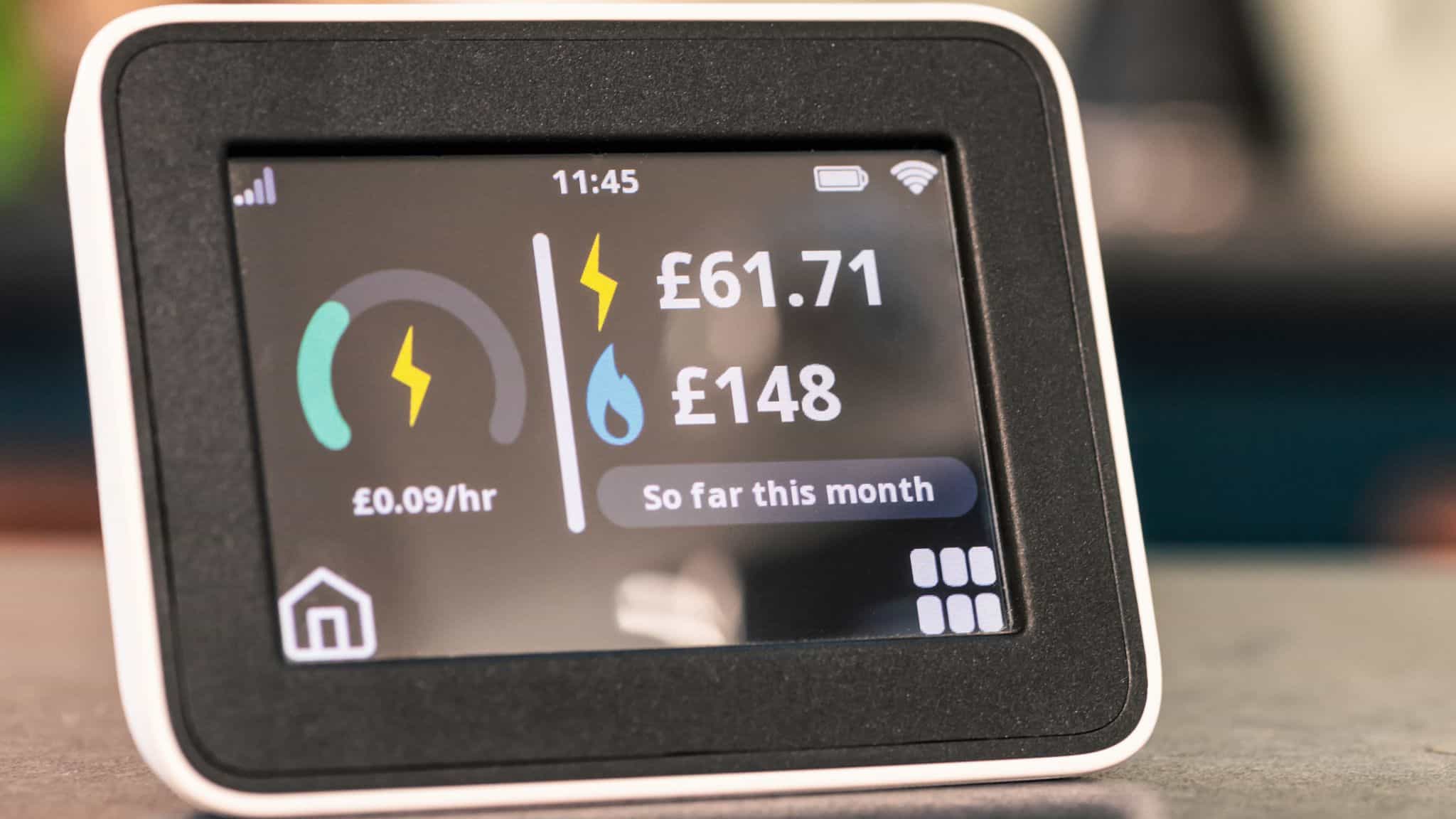On Premises vs Cloud
With the increasing adoption of cloud solutions, many organisations are asking what the difference is between cloud and on-premise IT and what is best option for my business? This guide shows a comparison of cloud vs on premise with a focus on security and cost.
When thinking about the differences between an on-premises IT infrastructure compared to cloud, it’s first important to think about what we mean by the environment. Depending on the business this could be at one-site or multiple and could consist of a range of hardware and software including servers, computers or databases.
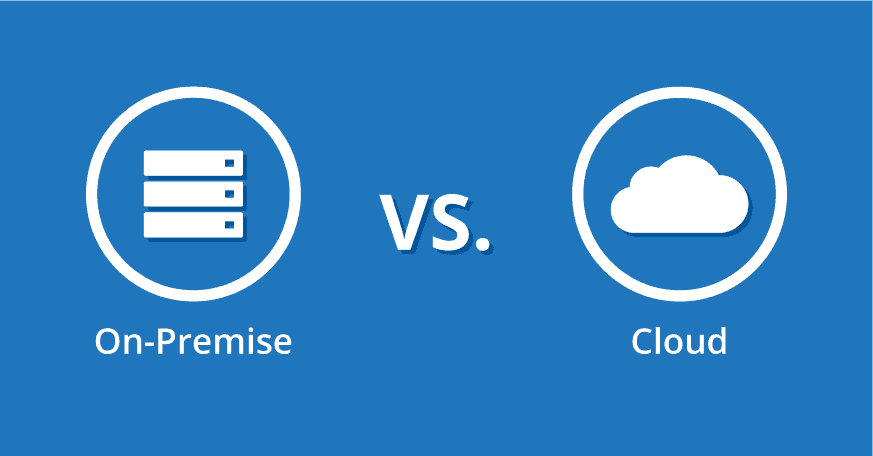
So, in simple terms, difference between on-premise and cloud is essentially where your hardware, application and software reside. On-premise means that a company keeps all of this IT infrastructure onsite, which is either managed by themselves or a third-party. With the Cloud it means that it is housed offsite with someone else responsible for monitoring and maintaining it.
On Premise vs Cloud
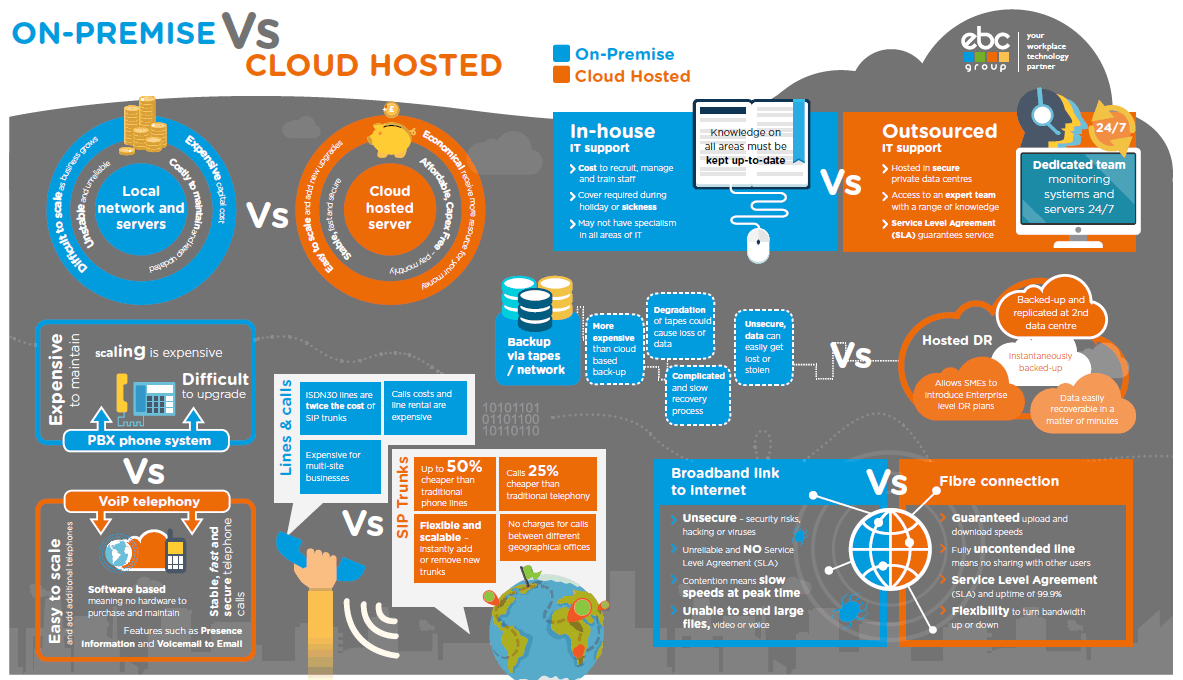
Due to its flexibility, reliability and security, cloud can remove the burden of a business having to maintain and upgrade their own systems, which enables them to invest their time and money into concentrating on their core business strategies. The sections below compare the different cloud setups and highlight the advantages and disadvantages of both.
Different Infrastructure Setups
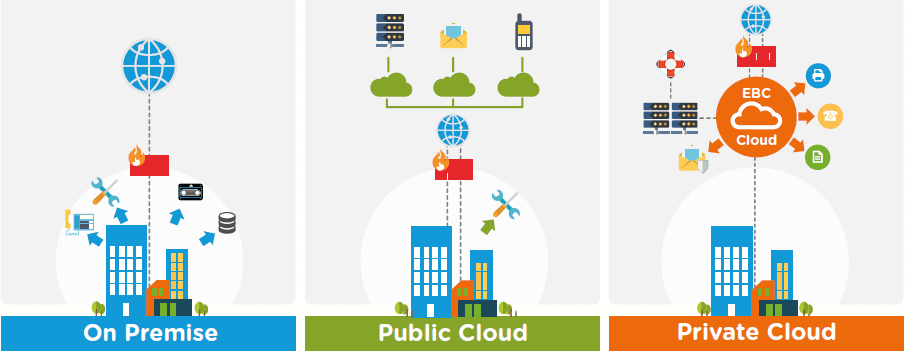
On-premises vs Public Cloud vs Private Cloud
On-premises
With on-premises infrastructure all services are run, managed and maintained from within the business on their own hardware and servers. Some businesses may choose to do this for compliance or security reasons, although often find it’s more expensive and offers less flexibility.
Public / Enterprise Cloud
Cloud services provided by global businesses such IONOS give businesses the power of enterprise level infrastructure at a fraction of the costs. Benefits such as per minute consumption-based billing benefits businesses that only want to pay for data and services when they use them.
Private Cloud
Whilst your data and hardware are kept in the cloud, it is completely private to your organisation, sitting on dedicated infrastructure that is entirely owned by you. A dedicated leased line into a Private Cloud is fully replicated, provides complete security.
Managed Cloud
A fully managed, multi-tenanted cloud solution that provides businesses with a high performance, reliability and scalability. It takes the complexity out of managing your own infrastructure and provides the perfect blend of public and private cloud.
Hybrid Cloud
With hybrid cloud a business uses a combination of on-premise and cloud infrastructure. There are a range of reasons that a business may choose to do this, from compliance issues, to the size of the data they are dealing with.
…as a Service
Believe it or not, the basics of the cloud and the differences between on-premise, infrastructure-as-a-service (IaaS), platform-as-a-service (PaaS) and software-as-as-service (SaaS) can be explained by using the example of making a pizza.
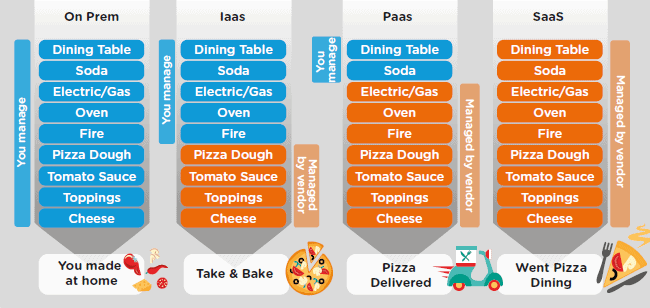
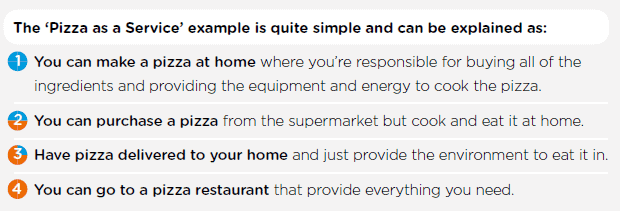
In each scenario you’re still having pizza, however in some cases your business takes responsibility and expense for managing all elements of the process, whilst in the latter you let a specialist do the work for you. What’s pizza got to do with IT you may ask?
The benefit of the ‘dining out’ model or SaaS is that your business outsources the entire process to a specialist provider who takes responsibility for everything, including the upfront cost of purchasing the infrastructure, maintaining the equipment, storage, security and running a team of specialists.
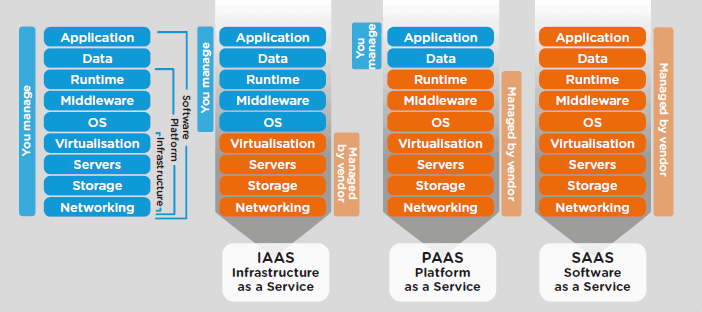
Cloud Benefits
Scalability
Get the specific amount of power you need, when you need it, enabling you to increase and decrease levels to suit your businesses demands
Cost Savings
Thanks to the utility pricing model of the cloud, you only pay for what you use. Avoid upfront hardware costs, as well as the costs of maintenance, software upgrades, power, and the manpower to manage it all
Disaster Recovery
A full back-up solution of not just your data but your entire server operating system and applications.
Learn more about Disaster Recovery
Accessibility
Host all your data and systems via a secure leased line connection which provides a high-speed private link between you and your provider
Reselience
Protecting your business against any potential IT failures that could cause down-time or disruption, fully backed-up to provide a complete disaster recovery solution
Business Focus
When you rely on the cloud, you can apply your time and money towards your business priorities, rather than worrying about your IT infrastructure
So, is cloud better than on-premise?
Whilst it’s clear that the Cloud offers a range of benefits, every business is different and has different priorities and strategies. As cloud technology has matured it has provided a wealth of new cloud platforms to choose from. Which whilst ideal in providing more options for businesses has also added increased complexity. For advice, read our guide on migrating to the cloud.
So it could be argued that in modern IT, it’s not so much a decision between whether on-premises or cloud is better, but what setup will fit with your business and its objectives. Which often means choosing a mixture of different infrastructure.
At EBC Group we believe in offering the right solution for your business and its objectives. We can offer a wide range of either on-site or cloud solutions to suit your needs, as well as the managed services required to make sure they are fully scoped, supported and managed throughout.

